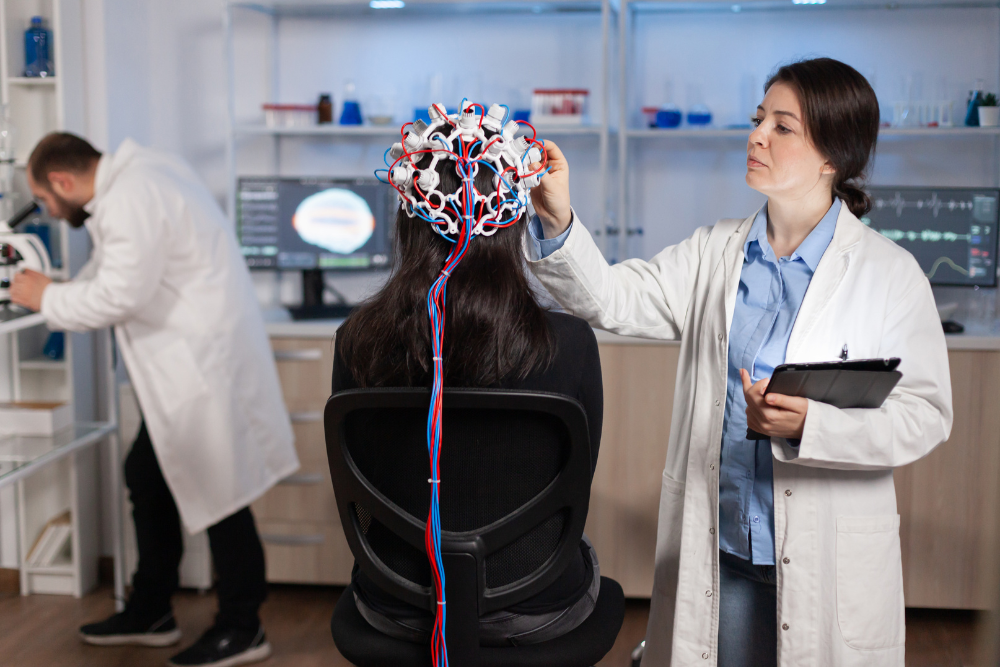Overview
Welcome to Parvathy Multispeciality Hospital's Cardiology Department, your dedicated destination for comprehensive heart care. If you're searching for a cardiologist near me or the best cardiologist in Chennai, you've come to the right place. Cardiology, a medical speciality, is focused on the diagnosis and treatment of diseases and abnormalities involving the heart and blood vessels.
Common factors contributing to heart conditions include:
- Coronary Artery Disease (CAD): Buildup of plaque in the arteries restricting blood flow to the heart.
- Heart Attack (Myocardial Infarction): Occurs when blood flow to a part of the heart muscle is blocked.
- Heart Failure: Inability of the heart to pump blood effectively.
- Arrhythmias: Irregular heart rhythms affecting the heart's electrical system.
- Valvular Heart Disease: Dysfunction of heart valves affecting blood flow.
- Hypertension (High Blood Pressure): Prolonged elevated blood pressure leading to heart strain.
Treatment & Care
Our cardiology department offers a range of advanced treatments and care options tailored to each patient's unique needs:
- Medication Management: Prescription of medications to regulate blood pressure, cholesterol, and address specific cardiac conditions.
- Interventional Procedures: Minimally invasive procedures such as angioplasty and stent placement to restore blood flow in blocked arteries.
- Cardiac Surgeries: Surgical interventions like bypass surgery or valve replacement when necessary.
- Lifestyle Modifications: Guidance on adopting heart-healthy habits, including a balanced diet, regular exercise, and stress management.
When to Consult a Doctor ?
Knowing when to seek medical attention is crucial for managing heart health. Contact our cardiology team if you experience:
- Chest Pain or Discomfort: Especially if accompanied by shortness of breath.
- Irregular Heartbeat: Persistent palpitations or irregular heart rhythms.
- Unexplained Fatigue: Feeling unusually tired despite adequate rest.
- Swelling: Sudden or severe swelling in the legs, ankles, or abdomen.
- Dizziness or Fainting Spells: Loss of consciousness or frequent dizzy spells.
Call +91 98412 98412 for medical emergencies or 044 2238 2248 / +91 98848 99091 to book an appointment.
General (FAQ) For Cardiology
A cardiologist is a specialized doctor who diagnoses, treats, and prevents diseases and conditions related to the heart and blood vessels. They utilize various diagnostic tools, such as imaging tests and specialized procedures, to assess heart health and provide comprehensive care.
Cardiology involves the study, diagnosis, and treatment of heart-related conditions. Cardiologists perform a range of procedures, including diagnostic tests like echocardiograms and stress tests, as well as interventions such as angioplasty and stent placement. They also manage long-term heart health through medication and lifestyle recommendations.
While cardiologists primarily focus on non-surgical interventions and medical management, some cardiologists specialize in interventional cardiology, performing procedures like angioplasty and stent placement. Cardiothoracic surgeons, on the other hand, are specialists who perform cardiac surgeries like bypass surgery.
Symptoms of a weak heart, often indicative of heart failure, may include fatigue, shortness of breath, swelling in the legs or abdomen, persistent coughing, and an irregular or rapid heartbeat. It's crucial to consult a cardiologist if experiencing these symptoms for a proper evaluation.
Stage 1 heart failure, also known as mild heart failure, indicates a slight impairment in the heart's pumping ability. At this stage, individuals may not experience significant symptoms during normal activities, but there might be signs of heart dysfunction during more strenuous activities.
Heart attacks typically result from a blockage in the coronary arteries that supply blood to the heart muscle. The blockage can be caused by the buildup of plaque, leading to reduced blood flow. This lack of blood flow can result in damage to the heart muscle, causing a heart attack.
Regular check-ups with a cardiologist are essential for assessing heart health. Diagnostic tests such as ECG, echocardiogram, and stress tests can provide insights into the heart's function. Additionally, maintaining a healthy lifestyle, including regular exercise, a balanced diet, and managing stress, contributes to overall heart well-being. If you have concerns, consult a healthcare professional at PICS for a thorough evaluation.





















